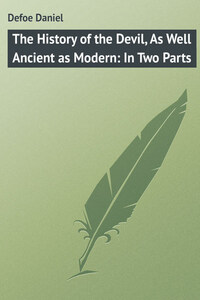AND WHAT IF THE PRETENDER SHOULD COME?
OR SOME CONSIDERATIONS, &c
If the danger of the pretender is really so great as the noise which some make about it seems to suppose, if the hopes of his coming are so well grounded, as some of his friends seem to boast, it behoves us who are to be the subjects of the approaching revolution, which his success must necessarily bring with it, to apply ourselves seriously to examine what our part will be in the play, that so we may prepare ourselves to act as becomes us, both with respect to the government we are now under, and with respect to the government we may be under, when the success he promises himself shall (if ever it shall) answer his expectation.
In order to this it is necessary to state, with what plainness the circumstances of the case will admit, the several appearances of the thing itself. 1. As they are offered to us by the respective parties who are for or against it. 2. As they really appear by an impartial deduction from them both, without the least bias either to one side or other; that so the people of Britain may settle and compose their thoughts a little in this great, and at present popular, debate; and may neither be terrified nor affrighted with mischiefs, which have no reason nor foundation in them, and which give no ground for their apprehensions; and, on the other hand, may not promise to themselves greater things from the pretender, if he should come hither, than he will be able to perform for them. In order to this we are to consider the pretender in his person and in his circumstances. 1. The person who we call the pretender; it has been so much debated, and such strong parties have been made on both sides to prove or disprove the legitimacy of his birth, that it seems needless here to enter into that dispute; the author of the Review, one of the most furious opposers of the name and interest of the pretender, openly grants his legitimacy, and pretends to argue against his admission from principles and foundations of his own forming; we shall let alone his principles and foundations here, as we do his arguments, and only take him by the handle which he fairly gives us, viz., that he grants the person of the pretender legitimate; if this be so, if the person we contend about be the lawful true son of King James's queen, the dispute whether he be the real son of the king will be quite out of the question; because by the laws of Great Britain, and of the whole world, a child born in wedlock shall inherit, as heir of the mother's husband, whether begotten by him, as his real father, or not. Now to come at the true design of this work, the business is, to hear, as above, what either side have to say to this point. The friends of his birth and succession argue upon it thus, if the person be lawfully begotten, that is, if born really of the body of the queen dowager, during the life of King James, he was without any exception his lawful son; if he was his lawful son, he was his lawful heir; if he was his lawful heir, why is he not our lawful king? Since hereditary right is indefeasible, and is lately acknowledged to be so; and that the doctrine of hereditary right being indefeasible, is a Church of England doctrine ever received by the church, and inseparable from the true members of the church, the contrary being the stigmatizing character of republicans, king-killers, enemies to monarchy, presbyterians, and fanatics. The enemies of the birth and succession of the person called the pretender argue upon it thus, that he is the lawfully begotten, or son born really of the body of the queen dowager of the late King James, they doubt; and they are justified in doubting of it, because no sufficient steps were taken in the proper season of it, either before his birth, to convince such persons as were more immediately concerned, to know the truth of it, that the queen was really with child, which might have been done past all contradiction at that time, more than ever after; or at his birth, to have such persons as were more immediately concerned, such as her present majesty, &c., thoroughly convinced of the queen being really delivered of a child, by being present at the time of the queen's labour and delivery. This being omitted, which was the affirmative, say they, which ought to have been proved, we ought not to be concerned in the proof of the negative, which by the nature of the thing could not be equally certain; and therefore we might be justly permitted to conclude that the child was a spurious, unfair production, put upon the nation; for which reason we reject him, and have now, by a legal and just authority, deposed his father and him, and settled the succession upon the house of Hanover, being protestants.
The matter of his title standing thus, divides the nation into two parties, one side for, and the other against the succession, either of the pretender, or the house of Hanover, and either side calling the other the pretender; so that if we were to use the party's language, we must say, one side is for, and the other side against, either of the pretenders; what the visible probabilities of either of these claims succeeding are, is not the present case; the nation appears at this time strangely agitated between the fears of one party, and the hopes of the other, each extenuating and aggravating, as their several parties and affections guide them, by which the public disorder is very much increased; what either of them have to allege is our present work to inquire; but more particularly what are the real or pretended advantages of the expected reign of him, who we are allowed to distinguish by the name of the pretender; for his friends here would have very little to say to move us to receive him, it they were not able to lay before us such prospects of national advantages, and such, views of prosperity, as would be sufficient to prevail with those who have their eyes upon the good of their country, and of their posterity after them.














